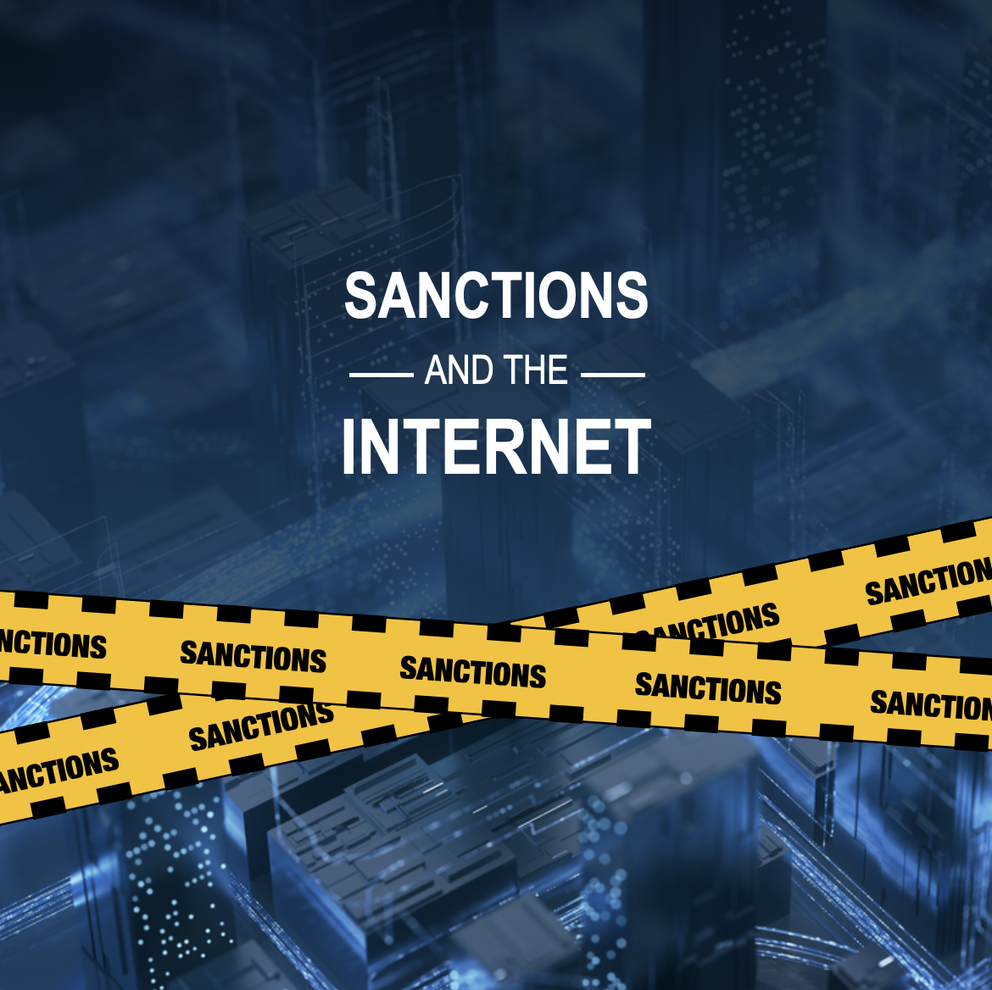We have published a study exploring the impact of economic sanctions on access to the global Internet. Our research investigates how sanctions affect the ability of ordinary people and non-sanctioned service providers to connect to the Internet and how they disrupt its global, interconnected nature.
Internet sanctions can harm people who rely on the Internet for communication, access to information, education, and commerce. These may include students who need to access online learning resources, small business owners who rely on e-commerce to run their businesses, or individuals who need to access health information and services online. When economic sanctions disrupt their access to the Internet, these individuals may experience significant negative impacts on their daily lives and livelihoods. Access to the Internet goes beyond access to communication, it means access to essential services.
Because of the distributed nature of the Internet, it is extremely difficult to come up with targeted sanctions. This is why we need to study the impact of sanctions on the Internet on a granular level to have a better understanding and mitigate the impact on ordinary people.
Our Report
Our report is a significant contribution to the ongoing discourse on how nations can implement effective sanctions policies without compromising the interconnectivity and global nature of the Internet. Its findings will be of particular interest to policymakers, technology companies, and international organisations seeking to ensure that the Internet remains a vital tool for communication and commerce.
In following articles, we'll cover the Internet value chain and the impact of sanctions on each layer of the Internet. We'll assess the devastating impact they have on global interconnectivity and provide recommendations. For now, here's a brief overview of the purpose and goals of the report.
Economic sanctions
To recap, economic sanctions are penalties on economic relationships between the target actor and other entities. These sanctions can cause the seizing of assets, prevention of trade, and travel restriction. By cutting off economic growth sources, sanctions regimes hope to alter the economic activities of the targeted actors and ultimately halt any harmful activities. As a result, economic sanctions could be imposed when a State violates human rights.
Economic sanctions have the potential to adversely affect people’s access to the Internet and risk undermining its global, interconnected nature. This risk becomes especially pressing when the state targeted by sanctions has a monopoly over the telecommunications sector, when there is over-compliance of actors with sanctions, when non-targeted blanket sanctions are applied, or when there is inconsistency in sanction strategies in different jurisdictions.
But how do sanctions exactly affect interconnectivity? Studying the Internet value chain reveals that, at present, the network layer and the operators in that layer are the most affected by sanctions. This is the layer where routing happens - i.e. where nodes start talking to each other, sharing routing and reachability information. When sanctions impact this layer, there are few if any alternatives to fall back on, and the worst case scenario for disruption here would see parts of the Internet eventually ceasing to be reachable, effectively becoming cut off. Other layers are also impacted, which we cover extensively in the report.
How our report can help
The policymakers, tech companies, and other actors that deal with sanctions and care about their impact on access to the Internet can use the report to:
- Decide which Internet actors are or can be affected by sanctions and whether there is a major impact on Internet access now or in the future
- Pursue strategies that impose targeted (smart) sanctions that do not impact access to the Internet
- Contribute to clear compliance regimes that mitigate the impact of sanctions on access to the Internet
It should be noted that throughout our research, it was revealed that the financial sector had a role and Internet operations were potentially affected due to not having access to financial services to facilitate the transactions. In the report, we do not delve into this issue much, but we have a few recommendations for future studies. In the next of these articles, we'll explain how sanctions impact access to the critical properties of the Internet.





Comments 0
The comments section is closed for articles published more than a year ago. If you'd like to inform us of any issues, please contact us.